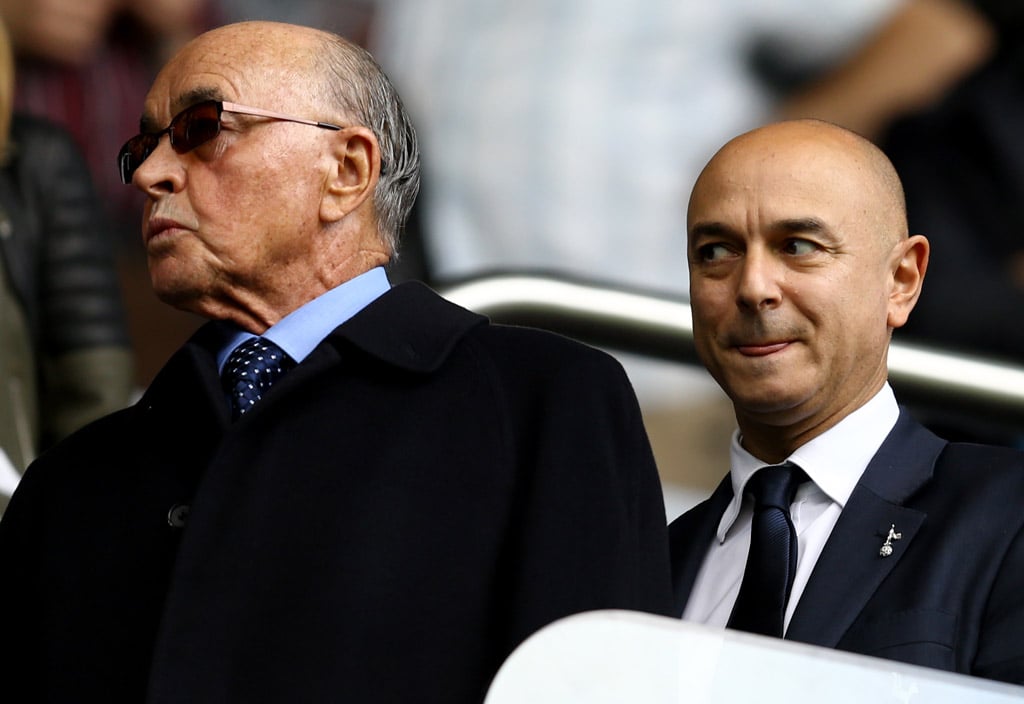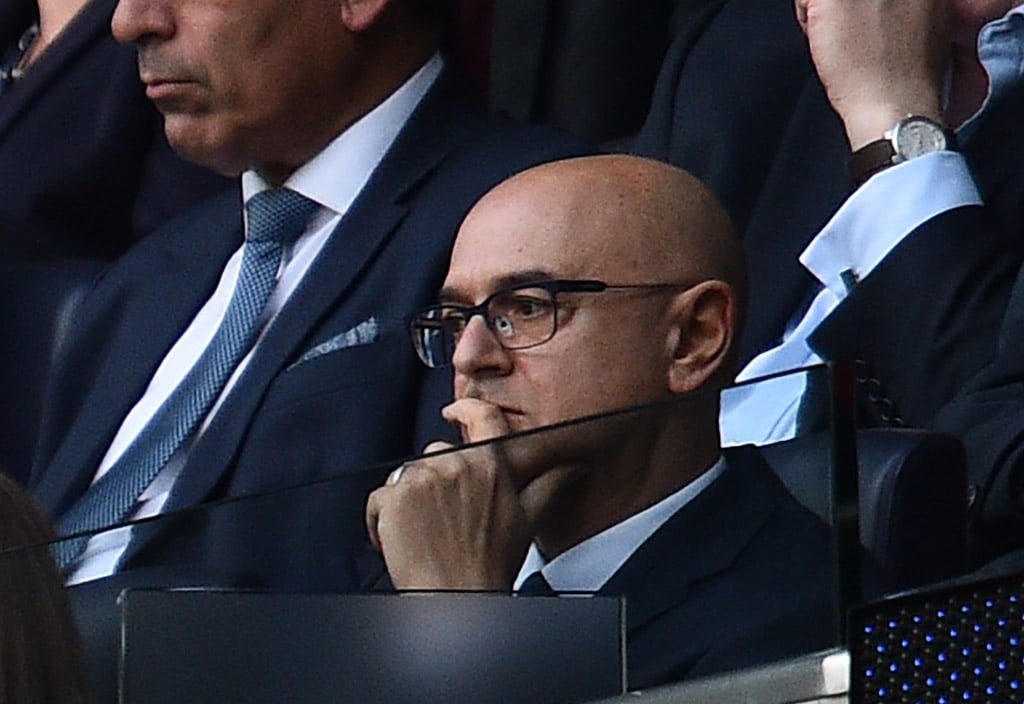The Tottenham hierarchy have finally taken the time to answer questions from the Tottenham Hotspur Supporters’ Trust on long-term strategy, transfer spending, and the future of Antonio Conte (THST).
The first question revolved around the medium and long-term strategy of Tottenham Hotspur moving forward, to which the club were keen to also recount the successes of the past. They claim the aim is to now generate revenue which can be invested into football activities.
THST asked: Will the Club share its medium and long-term strategy for success, both on and off the pitch? How is the Club measuring progress and how does it judge current outcomes against those measurements?
Tottenham answered: ‘In the last 20 years the Club has qualified for European competition 17 times – 13 of which are currently successive – including six Champions League campaigns. We set out our business model in last year’s Financial Results announcement and below is the relevant section:
“Foundations in place: …… Since ENIC became the majority shareholder in 2001 we have had a clear three-step strategy. Firstly, we worked to improve football performance and, whilst no one club has a right to a smooth, continuous, upward trajectory, we have seen the club rise from middle to bottom-of-the-table finishes to being in European competition in 15 out of the last 16 seasons.
‘Secondly, we built a state-of-the-art training centre to attract, train and retain the best talent, both for the Academy and the First Team. We have gone on to do far more than that with the delivery of our award-winning player accommodation, ‘The Lodge’, which has been instrumental in providing exceptional rest and recovery facilities for players and, during COVID-19 times….
‘Thirdly, we set out to deliver an increased capacity stadium that would not only generate greater matchday revenues, but also the opportunity for more fans to attend games. Our Club could not remain competitive with one of the smallest stadiums in the Premier League.
MORE SPURS STORIES
‘….Having delivered our training centre, The Lodge and stadium we shall not stand still, we shall continue to innovate and ensure the most exceptional player, fan and visitor experiences.
‘Our building blocks for the future success of the Club are now firmly in place.
‘Our Club strategy: Going forward, therefore, our strategy is clear – to drive and generate revenues to invest in all of our football activities. Football success, in turn, supports the growth of our Club, our fanbase and consequently wider, commercial opportunities and partnerships, which then deliver further revenue to reinvest in football – the virtuous, sustainable circle on which our Club model is based.
‘We shall develop new and diverse revenue streams to increase recurring revenues. Third-party events such as conferencing, NFL, concerts, boxing and rugby are all examples of this. Our stadium is a key component to our revenue growth yet, unbelievably, we have still not seen and enjoyed a full season in our new stadium with attendances.
‘We shall continue to invest in our senior management and our staff to deliver this and look to decrease our reliance on football revenues alone, such that we protect our Club’s long-term sustainability.” (Year end 30 June 2021)
‘We have delivered world-class facilities which are in place to generate income for investment in our football activities. Our stadium debt is long-term ensuring limited impact on the Club’s ability to invest.
‘Completing the stadium was always a key step in our strategy of increasing and diversifying recurring revenues to fund our football activities. The COVID-19 pandemic saw a two-year disruption and a loss of circa £200m, but we are now back on the planned journey of growth. We have seen the return of football, third-party events and visitor attractions income. Growing our revenues is essential for the Club to continue to have the ability to invest in players.
‘We want to be consistently qualifying for the Champions League and challenging for and winning major honours. Returning to the Champions League this season was important – although we acknowledge the number of teams competing for those four places. We are working hard to build a strong, deep squad with a winning mentality.
‘There has been a detailed review of all departments on the football side of the Club in order to constantly improve and changes have been – and continue to be – made to ensure we remain competitive, attract and retain the best players and continue to progress. Improved recruitment and a world-class academy are vital to our future success.’
The focus was then shifted to Antonio Conte who, as it stands, would be leaving Tottenham this summer at the end of his contract unless the extra year is triggered or the Italian puts pen to paper on a new deal (Football London).
THST asked: The manager employed by the Club has not signed a new contract and tells us that we should lower our expectations about on-field outcomes. He has said publicly that the Club needs to spend big money every window just to compete. How does this align with the Board’s philosophy for achieving success?
Tottenham answered: ‘Like everyone at the Club, our Head Coach wants the team to compete for top honours. The Club has invested heavily in the squad. This is a continual process with the aim of standing the Club in good stead on the pitch for years to come.
‘Since opening the stadium in April 2019 we have spent more than £500m putting us in the top quartile of spending in the Premier League – and we have made significant investments in the Women’s team too. In addition to the summer investment of over £200m we have committed to a further £47m spend this January.
‘Despite this we consistently see references to our perceived lack of backing for head coaches and lack of spending.
‘It’s important that we deal with facts – our spend levels quite clearly show that we have backed our football side. There is always a fine line between long-term investment and short-termism – which is why our recruitment has to be first class.
‘Mistakes at this level leave a financial and sporting impact for future seasons. We have felt the financial impact of supporting player purchases which have not worked out as hoped. We have taken steps to improve this area of operations and the recent windows reflect this.’
Next, the THST focused on player recruitment and youth development. It is well known that Spurs have suffered mistakes aplenty in the transfer market of late. You need only look at the likes of Ndombele, Lo Celso, Rodon, and more out on loan. While the route from the academy the first-team has not been walked by many youngsters of late.
THST asked: Are you satisfied with player recruitment in recent transfer windows and with the performance of the youth teams and the development and supply of younger players through to the first team? Are there any plans to improve this?
Tottenham answered: ‘Answered above. We are excited by the young talents we have at the academy. We have always ensured a clear pathway for youth to progress to the First Team, along with a development system that includes strategic loans. In respect of new young players, Jude Soonsup-Bell is a great addition to our U21s.’
Finally, the last question focused on Tottenham’s plans for future investment and a naming rights partner for the new stadium, although the hierarchy remained tight-lipped on any matters potentially involving third-party investment.
THST asked: Does the Club have a plan for further investment to ensure that the Club remains competitive on the pitch in the face of substantial additional investment by other Premier League clubs? Is the Club closer to securing a naming rights provider? Is there a plan for further investment from ENIC, or from other potential investors or buyers?
Tottenham answered: ‘Answered in part above. In response to the latter part of this question: all our conversations with third parties are confidential. With specific reference to naming rights, we are clear that any deal has to be right for the Club, notwithstanding we currently have our own name proudly on the stadium receiving global recognition.
‘Financial sustainability has been fundamental to how we have run this Club. Our aim has always been to combine the financial stability of the Club with remaining competitive on the pitch.
‘The ENIC investment was timely and critical as we emerged from the pandemic and sought to stay competitive on the pitch. We are ever-conscious of the new capital injected into other clubs which has seen player transfer spending increase significantly.
‘We should be mindful, however, of the implications of the changes to the governance of the game which will compel greater sustainability and financial fair play (FFP). Major changes have been introduced in Europe around FFP regulations, including the newly launched UEFA financial sustainability rules, the full impact of which will be felt from season 2025/26.
‘They are based on three pillars: solvency, stability and cost control and clubs will have three seasons to adjust to them. Many expect that these new rules will be a game changer for the sport. We should also allow for the possibility of even tighter regulations.’
Spurs Web Opinion:
The THST did a great job getting these questions answered, but I’m afraid it’s the same old PR answers you would expect from Tottenham. You probably could have gotten some AI to predict the exact wording, in fact. I don’t think anything they can say will make a difference, it’s more about their actions over the next year or so.
Keep up to date with all the latest Tottenham news and opinion by following SpursWeb’s Facebook, Twitter and Instagram accounts.



